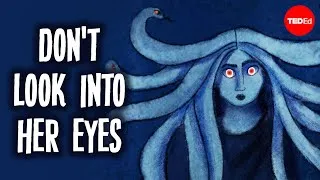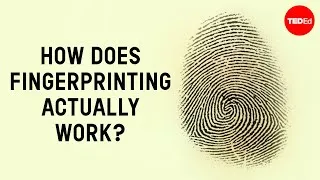请双击下面的英文字幕来播放视频。
翻译人员: Bin Chen
校对人员: Xuwen Zhu
00:07
English, like all languages,
0
7136
1897
英语,像所有语言一样,
00:09
is a messy business.
1
9033
1540
并不总是那么规规矩矩。
00:10
You can be uncouth but not couth.
2
10573
2710
你可以“粗俗”(uncouth)但却不能“文雅”(没有couth这个词)
00:13
You can be ruthless,
3
13283
1437
你可以“无情”(ruthless),
00:14
but good luck trying to show somebody
4
14720
1613
但除非你和一个叫Ruth的女孩结婚,
00:16
that you have ruth
5
16333
1081
否则不可能告诉别人
00:17
unless you happen to be married
6
17414
1536
你有“情”
00:18
to someone named Ruth.
7
18950
1741
(英语里没有ruth这个词)
00:20
It's bad to be unkempt
8
20691
1463
“不整洁”(unkempt)是件很糟糕的事,
00:22
but impossible to be kempt,
9
22154
1845
但“整洁”(kempt)是绝对不可能的(因为没这个词),
00:23
or sheveled as opposed to disheveled.
10
23999
3306
同样,不存在“整齐”(sheveled),但我们有“凌乱”(disheveled)。
00:27
There are other things
11
27305
691
00:27
that make no more sense than those
12
27996
1565
还有其他情况
比刚才所说的更加没有道理,
00:29
but that seem normal now
13
29561
1303
但现在看来却已经很稀松平常。
00:30
because the sands of time
14
30864
1582
因为经过时间的推移,
00:32
have buried where they came from.
15
32446
1997
人们已经不记得这些说法最初的来源了。
00:34
For example, did you ever wonder
16
34443
1701
举例来说,你是否想过
00:36
why a nickname for Edward is Ned?
17
36144
3131
为什么“爱德华”(Edward)的昵称是“奈德”(Ned)?
00:39
Where'd the N come from?
18
39275
1370
这个“N”从什么地方来的?
00:40
It's the same with Nellie for Ellen.
19
40645
2603
“艾伦”(Ellen)的昵称“奈丽”(Nellie)也面临同样的问题。
00:43
Afterall, if someone's name is Ethan,
20
43248
2032
毕竟,如果某人叫“伊桑”(Ethan),
00:45
we don't nickname him Nethan,
21
45280
2121
那么我们不叫他“尼桑”(Nethan),
00:47
nor do we call our favorite Maria, Nmaria.
22
47401
3177
同样我们不叫“玛丽亚”(Maria)为“娜玛丽亚”(Nmaria)。
00:50
In fact, if anyone did,
23
50578
1326
事实上,如果有人这么叫了,
00:51
our primary urge would be to either scold them
24
51904
2371
那么,我们的第一反应要不就是去训斥他们,
00:54
or gently hide them away
25
54275
1477
要不温柔一点,把这样叫的人藏起来
00:55
until the company had departed.
26
55752
2021
直到对方都离开。
00:57
All these nicknames trace back to a mistake,
27
57773
3589
所有这些昵称都来源于一个错误,
01:01
although, a perfectly understandable one.
28
61362
2754
尽管,这个错误完全可以理解。
01:04
In fact, even the word nickname is weird.
29
64116
2812
事实上,甚至“昵称”(nickname)这个词都很奇怪。
01:06
What's so "nick" about a nickname?
30
66928
2456
“昵称”(nickname)这个词的什么部分很“尼克”(nick)吗?
01:09
Is it that it's a name that has a nick in it?
31
69384
2417
是不是这个名字上面有一个“缺口”(nick)?
01:11
Let's face it, not likely.
32
71801
1756
好像不是这样子的。
01:13
Actually, in Old English, the word was ekename,
33
73557
2722
事实上,在古代英语中,这个词是“ekename”,
01:16
and eke meant also or other.
34
76279
2884
“eke”的意思是“也”或“另一个”。
01:19
You can see eke still used
35
79163
2048
你可以看到“eke”如下的用法,
01:21
in Chaucer's <em>Canterbury Tales</em> in a sentence like,
36
81211
2626
在乔叟的《坎特伯雷故事集》有这么一句话,
01:23
"Whan Zephyrus eek with his sweete breeth,"
37
83837
2912
"When Zephyrus eke with his sweete breeth,"
01:26
which meant,
38
86749
922
意思是,
01:27
"When Zephyr also with his sweet breath."
39
87671
2498
"When Zephyr also with his sweet breath."(当Zephyr“同样”带着甜蜜的气息)
01:30
Ekename meant "also name."
40
90169
3400
“Ekename”的意思是“另一个名字”
01:33
What happened was that when people said, "an ekename,"
41
93569
3543
当人们说“一个另一个名字”(an ekename),
01:37
it could sound like they were saying,
42
97112
1556
听起来好像在说
01:38
"a nekename,"
43
98668
2019
“一个昵称”(a nekename,英语里面音节的连读产生了这种效果)
01:40
and after a while,
44
100687
1055
过了一段时间以后,
01:41
so many people were hearing it that way
45
101742
1876
太多的人都听到了这种发音,
01:43
that they started saying,
46
103618
1323
以至于大家都开始说,
01:44
"That's my nickname,"
47
104941
1347
"那是我的“昵称”(nickname)",
01:46
instead of, "That's my ekename."
48
106288
3456
而不是,"那是我的“爱称”(ekename)"
01:49
Now, the word had a stray n at the front
49
109744
2034
这个有一个奇怪的“n”在前头的单词
01:51
that started as a mistake,
50
111778
1405
起源于一个错误,
01:53
but from now on was what the word really was.
51
113183
3177
但是现在已经是既定事实了。
01:56
It was rather as if you had gum
52
116360
1627
就像,
01:57
on the bottom of your shoe
53
117987
1555
你在鞋底粘了一个口香糖
01:59
and stepped on a leaf,
54
119542
1196
踏上了一张叶子,
02:00
dragged that leaf along for the rest of your life,
55
120738
2005
这张叶子粘在你的鞋底,陪伴了你的一生,
02:02
were buried wearing that shoe
56
122743
1432
死后穿着这双鞋埋葬于地下
02:04
and went to heaven in it
57
124175
1152
一起去了天堂
02:05
to spend eternity wedded to that stray, worn-out leaf.
58
125327
3304
然后这片古怪陈旧的叶子陪着你直到永恒。
02:08
Ekename picked up an n and never let it go.
59
128631
3429
“爱称”(ekename)就这样连上了开头的那个“n”,并永远留存。
02:12
The same thing happened with other words.
60
132060
1709
同样的事情也发生在其他单词上面。
02:13
Old English speakers cut otches into wood.
61
133769
3637
古代英语说在木头上刻“刻痕”(otches)
02:17
But after centuries of being asked
62
137406
1527
但是几百年来人们说
02:18
to cut an otch into something,
63
138933
2891
在一样东西上刻“一个刻痕”(an otch),
02:21
it was easy to think you were cutting a notch instead,
64
141824
3791
很容易被听成刻“一个裂痕”(a notch),
02:25
and pretty soon you were.
65
145615
1795
然后大家就都这么说notch了。
02:27
In a world where almost no one could read,
66
147410
1874
在一个大家几乎都不识字的年代,
02:29
it was easier for what people heard
67
149284
1910
大家听到的(而不是写下来的文字)
02:31
to become, after awhile,
68
151194
1501
更容易在一段时间后
02:32
what it started to actually be.
69
152695
2132
代替原来的词变成真正的说法。
02:34
Here's where the Ned-style nicknames come in.
70
154827
2541
这就是“奈德”样式昵称的起源。
02:37
Old English was more like German
71
157368
2122
比起现代英语,
02:39
than our English is now,
72
159490
1716
古代英语更像德语,
02:41
and just as in German, my is mein,
73
161206
2704
正如在德语中,“我的”叫mein,
02:43
in Old English, my was meen.
74
163910
3251
在古英语中,“我的”是meen。
02:47
You would say meen book,
75
167161
1435
你会说“我的书”(meen book),
02:48
actually boke in Old English,
76
168596
1974
事实上古英语里“书”是boke
02:50
or meen cat.
77
170570
1530
或者“我的猫”(meen cat)。
02:52
And just as today,
78
172100
1491
就如现代一样,
02:53
we might refer to our child
79
173591
1652
我们称我们的孩子为
02:55
as my Dahlia
80
175243
1181
我的达利亚(my Dahlia)
02:56
or my Laura,
81
176424
1470
或者我的劳拉(my Laura),
02:57
in Old English, they would say, "Meen Ed".
82
177894
2683
在古英语中,他们说“我的艾德”(Meen Ed)。
03:00
That is mein Ed,
83
180577
1897
意思是“我的艾德”(德语mein Ed),
03:02
mein Ellie.
84
182474
1865
以及“我的艾丽”(mein Ellie)。
03:04
You see where this is going.
85
184339
1742
你猜到会发生什么了吧。
03:06
As time passed, meen morphed
86
186081
2464
随着时间流逝,“我的”(meen)
03:08
into the my we know today.
87
188545
2379
变成了我们今天所知道的单词,my。
03:10
That meant that when people said, "Mein Ed,"
88
190924
3142
这意味着当人们说“我的艾德”(Mein Ed)的时候,
03:14
it sounded like they were saying my Ned.
89
194066
3265
听起来好像在说“我的奈德”(my Ned)
03:17
That is, it sounded like whenever someone
90
197331
1863
那就是,听起来就像
03:19
referred to Edward affectionately,
91
199194
1815
每当人们亲昵的提到爱德华(Edward)时,
03:21
they said Ned instead of Ed.
92
201009
2769
他们听起来在用“奈德”(Ned)来代替“艾德”(Ed)的发音。
03:23
Behold, the birth of a nickname!
93
203778
2402
知道了吧,“一个昵称”(a nickname),
03:26
Or an ekename.
94
206180
3400
或者,“一个爱称”(an ekename)就这么诞生了!
03:29
Hence, also Nellie for Ellen
95
209580
1656
同样,“奈丽”(Nellie)代替了“艾伦”(Ellen)
03:31
and Nan for Ann,
96
211236
1331
“南”(Nan)代替了“安”(Ann),
03:32
and even in the old days, Nabby for Abigal.
97
212567
2250
甚至曾经,“南比”(Nabby)代替了“阿比盖尔”(Abigal)。
03:34
President John Adam's wife Abigail's nickname was Nabby.
98
214817
4216
总统约翰亚当的妻子阿比盖尔(Abigail),她的昵称就是“南比”(Nabby)
03:39
All sorts of words are like this.
99
219786
1799
所有这些都是类似的情况。
03:41
Old English speakers wore naprons,
100
221585
3150
古代英语说穿"naprons"(围裙的古代单词)
03:44
but a napron sounds like an apron,
101
224735
4104
但是"a napron"听起来像“一块围裙”(an apron)
03:48
and that gave birth to a word apron
102
228839
1919
于是产生了一个新词“围裙”(apron)
03:50
that no one in Beowulf would have recognized.
103
230758
2575
apron这个词在贝奥武夫(有记载的最早一部英国文学作品)的年代可并不存在。
03:53
Umpire started as numpires, too.
104
233333
3047
同样,“裁判”(umpire)来源于“numpires”
03:56
If all of this sounds like something sloppy
105
236933
2006
这些变化听上去似乎都很草率
03:58
that we modern people would never do,
106
238939
1991
似乎现代人绝对不会这么做,
04:00
then think about something you hear all the time
107
240930
1887
那么,想想看你一直都听到的
04:02
and probably say,
108
242817
1380
听起来像
04:04
"A whole nother."
109
244197
1987
"整个另一边"(A whole nother)
04:06
What's nother?
110
246184
1553
什么是"nother"?(英语里没有nother这个词)
04:07
We have the word another, of course,
111
247737
2580
我们有个词“another”,没错,
04:10
but it's composed of an and other,
112
250317
3287
但是它包含了“一个”(an)和“其他”(other)
04:13
or so we thought.
113
253604
1008
(哪怕当初不是这么造出来的)但我们就是这么想的。
04:14
Yet, when we slide whole into the middle,
114
254612
2833
当我们把"whole"塞到中间,
04:17
we don't say, "a whole other,"
115
257445
1952
我们不说“一整个其他”(a whole other),
04:19
we clip that n off of the an
116
259397
2914
我们把“n”从“an”上取下来
04:22
and stick it to other
117
262311
1144
粘到“other”上面
04:23
and create a new word, nother.
118
263455
2948
然后创造了一个新词“nother”。
04:26
For a long time, nobody was writing
119
266403
2041
有很长一段时间
04:28
these sort of things down
120
268444
1302
没人会把这些用法写下来
04:29
or putting them in a dictionary,
121
269746
1628
或者放到字典里,
04:31
but that's only because writing
122
271374
1334
仅仅是因为
04:32
is more codified now than it was 1,000 years ago.
123
272708
3041
1000年前古人做的整理编纂工作比现代人要少的多。
04:35
So, when you see a weird word,
124
275749
1597
所以,当你看到了一个奇怪的词,
04:37
remember that there might be
125
277346
1515
请记得,这或许是
04:38
a whole nother side to the story.
126
278861
2402
故事的“一整个另一面”(a whole nother)。
New videos
关于本网站
这个网站将向你介绍对学习英语有用的YouTube视频。你将看到来自世界各地的一流教师教授的英语课程。双击每个视频页面上显示的英文字幕,即可从那里播放视频。字幕会随着视频的播放而同步滚动。如果你有任何意见或要求,请使用此联系表与我们联系。







